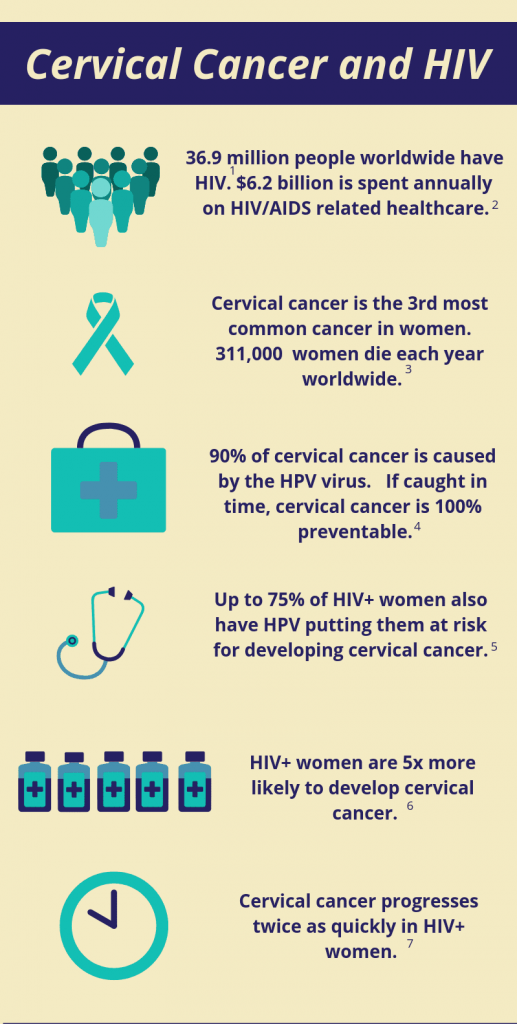It’s Cervical Health Awareness Month! A 2019 CDC study showed that the HPV vaccine that has become widely available is reducing cervical pre-cancer. Women who had received the HPV vaccine had the most drastic decrease in pre-cancers, but unvaccinated women showed a decline as well. Without further study, the cause of decline in unvaccinated women cannot be explained, but a possibility is herd protection (or immunity). For those who remember our flu shot health fact from October 18, herd immunity is the protection a population gains from disease because many of the individuals are immune to it. Essentially, it is difficult for viruses to be transmitted when many people are immune, which results in those who are not immune having protection due to the immunity of those around them. Infection-based cancers, like cervical cancer that can develop due to HPV, are particularly concerning for people living with HIV/AIDS, as compromised immune systems make contraction more likely. There is also research to suggest that a small number of people living with both HIV and HPV develop cervical cancer more rapidly. Unfortunately, the reason for this is not yet well understood, and more research is needed. Regular gynecological visits are important to maintain cervical health and prevent infection!
Infographic references
- www.who.int/gho/hiv/en/
- www.pri.org/stories/2012-12-02/infographic-cancer-deaths-vs-funding-low-and-middle-income-countries
- www.unicef.org/wca/press-releases/200000-girls-senegal-be-protected-year-against-cervical-cancer
- www.cdc.gov/cancer/hpv/statistics/cases.htm
- Pinkribbonredribbon.org/the-double-burden-hiv-and-cervical-cancer-webinar-with-the-international-aids-society/
- https://www.thelancet.com/journals/lancet/article/PIIS0140-6736(07)61050-2/fulltext
- https://www.who.int/en/news-room/fact-sheets/detail/human-papillomavirus-(hpv)-and-cervical-cancer

An infographic titled Cervical Cancer and HIV
36.9 million people worldwide have HIV. $6.2 billion is spent annually on HIV/AIDS related healthcare. (a superscript 2 provides which source this information was taken from)
Cervical cancer is the third most common cancer in women. 311,000 women dies each year worldwide. (a superscript 3 provides source number)
90 percent of cervical cancer is caused by the HPV virus. If caught in time, cervical cancer is 100 percent preventable. (superscript 4 provides source number)
Up to 75 percent of HIV positive women also have HPV putting them at risk for developing cervical cancer. (superscript 5 provides source number)
HIV positive women are 5 times more likely to develop cervical cancer. (superscript 6 provides source number)
Cervical cancer progresses twice as quickly in HIV positive women. (superscript 7 provides source number)

